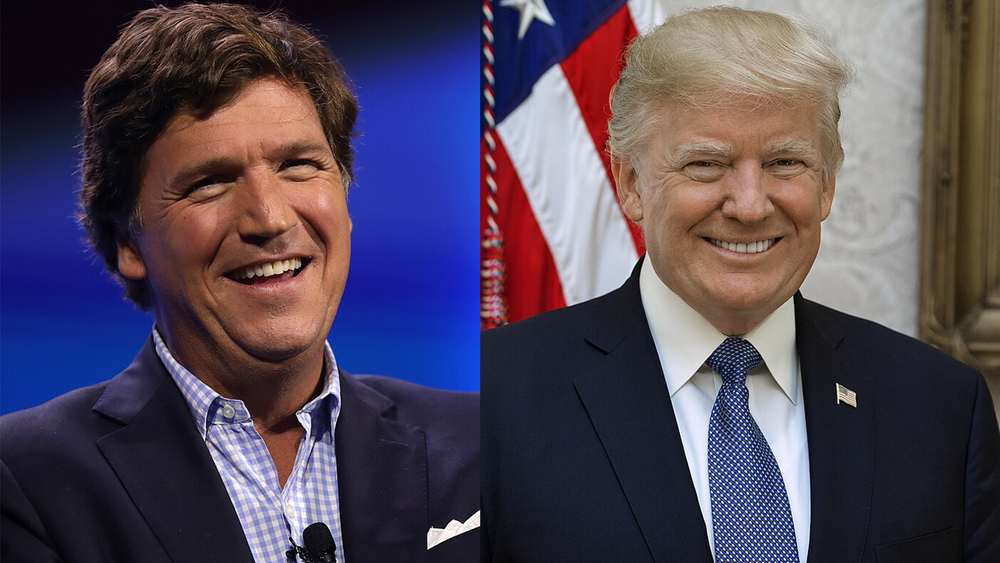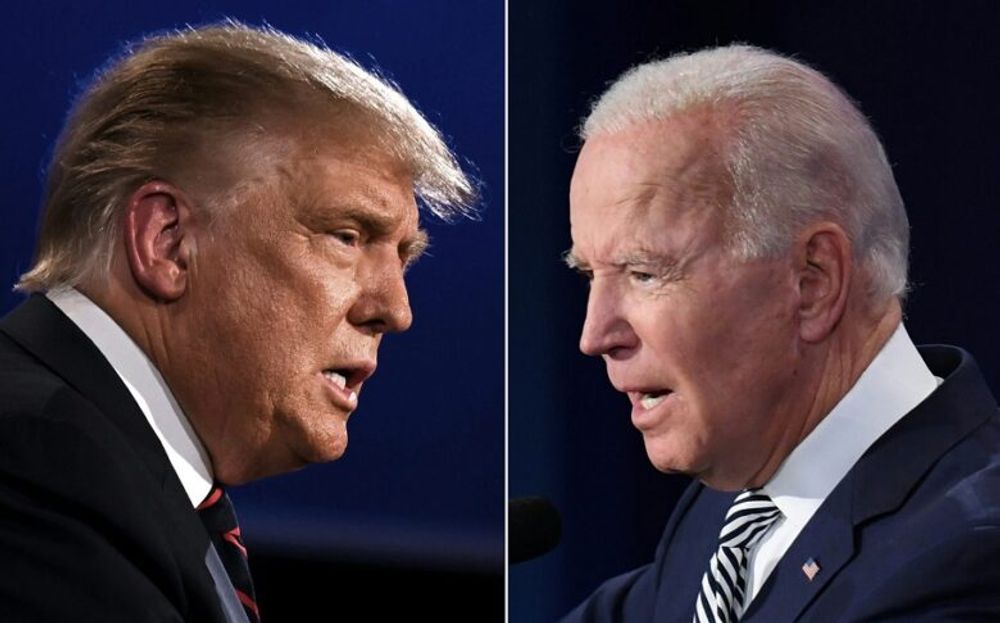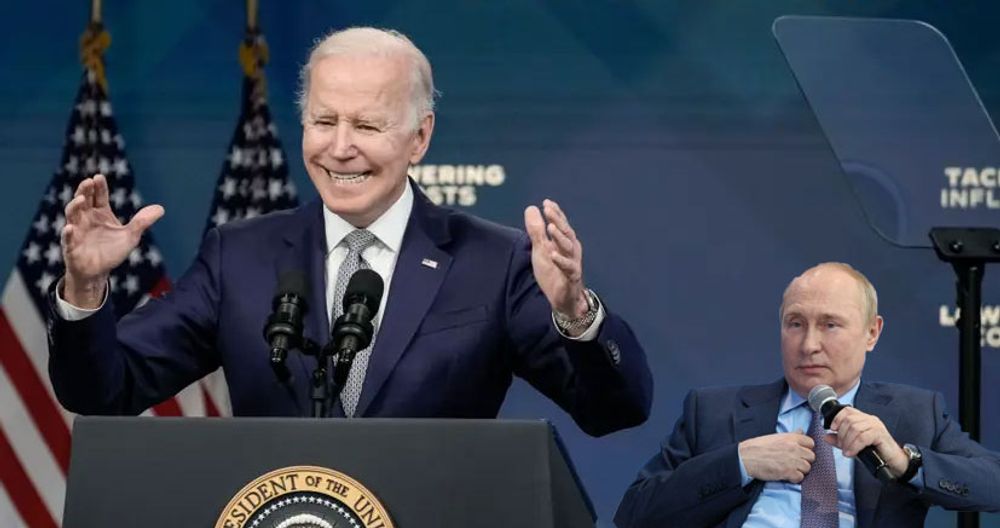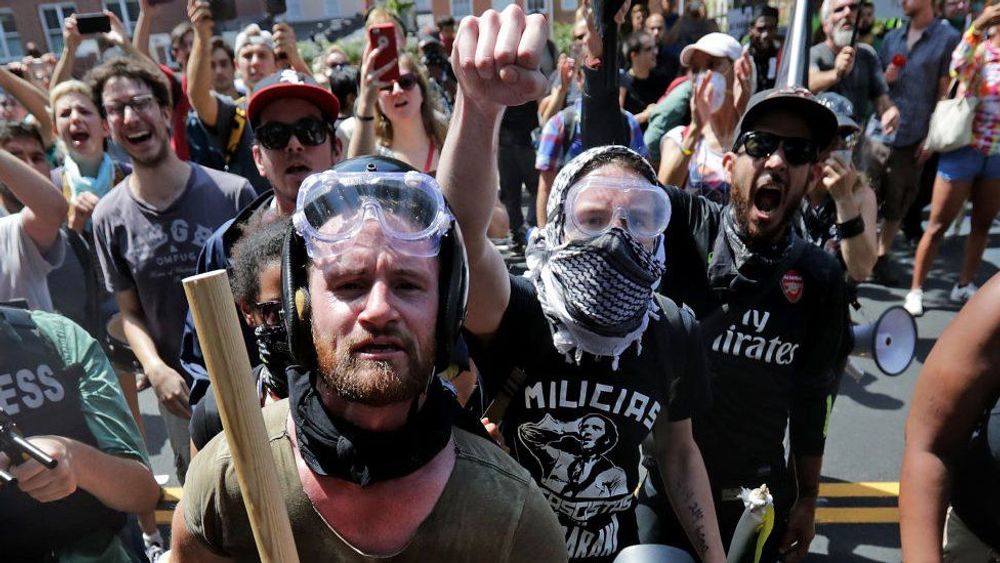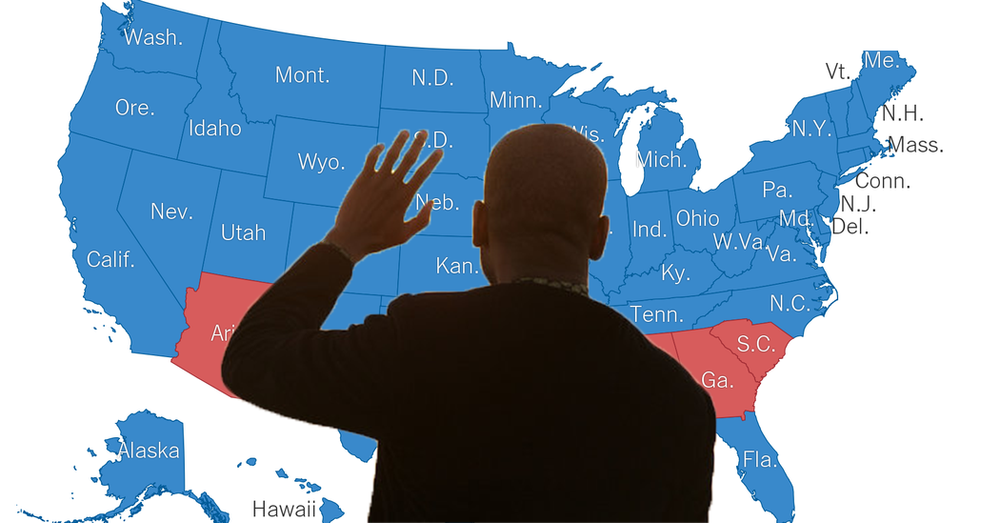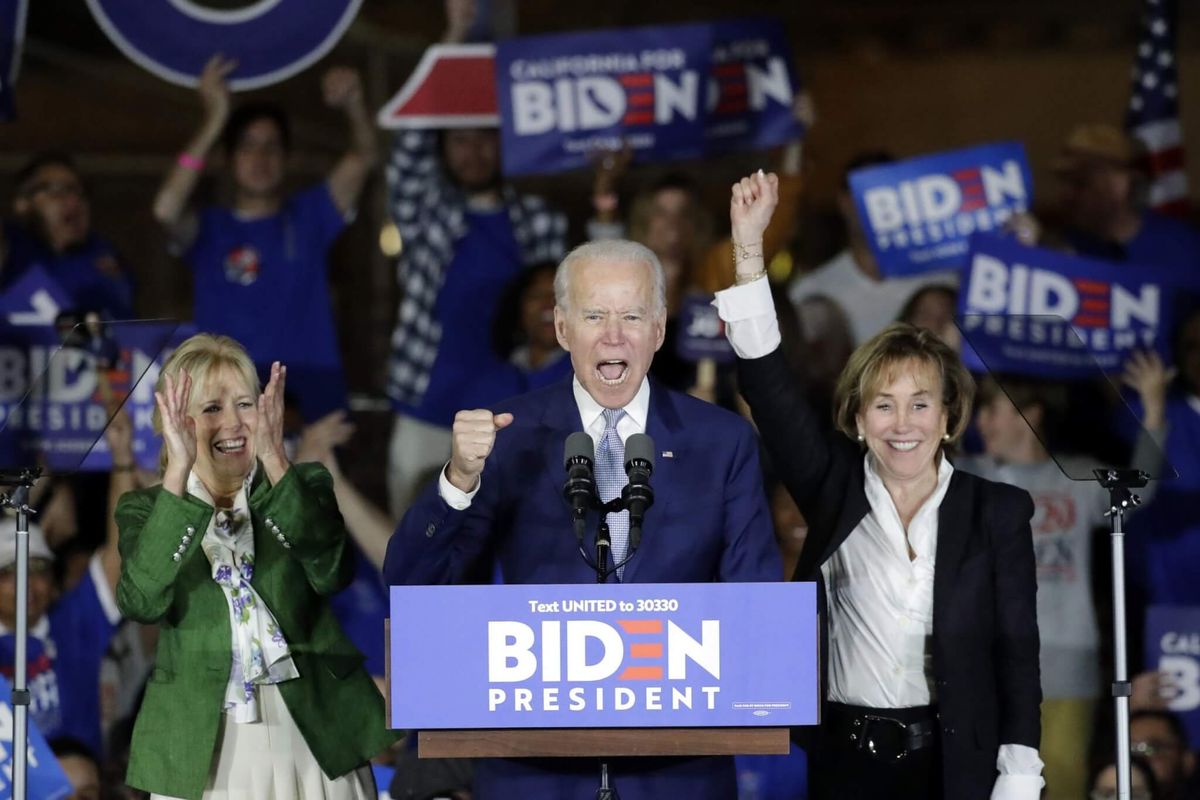
Biden’s Sweeping Super Tuesday Victories Re-shape Democratic Presidential Race
The race for the Democratic presidential nomination has consolidated from a once-crowded field with more than 20 candidates into essentially a two-man contest after robust results Tuesday for former Vice President Joe Biden and Vermont Senator Bernie Sanders.
Biden won nine states, including the delegate-rich state of Texas where his victory was a surprise after early national polls showed Sanders with a commanding lead there. He was strong across the South, also capturing Virginia, North Carolina, Alabama, Oklahoma, Tennessee and Arkansas, along with Minnesota and Massachusetts.
Sanders took the state with the most delegates, California, as well as Colorado, Utah and his home state of Vermont.
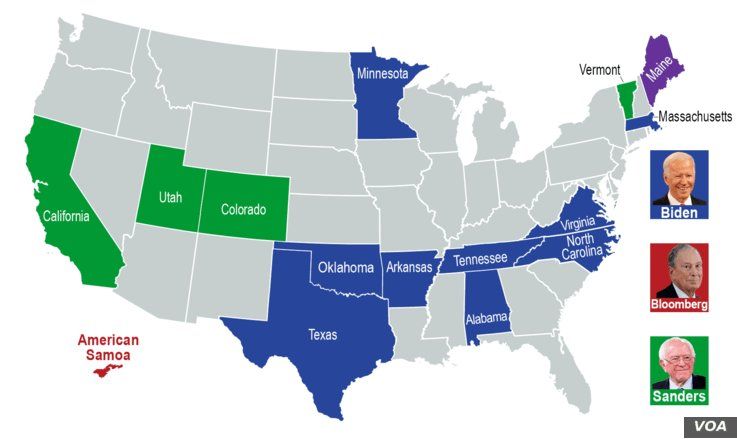
The two candidates were still locked in a close battle early Wednesday in Maine where the contest was too close too call.
Sanders expressed confidence at a late Tuesday rally in Vermont, saying not only would he become the Democratic nominee, but also defeat Republican President Donald Trump.
"You cannot beat Trump with the same old, same old kind of politics. What we need is a new politics that brings working class people into our political movement, which brings young people into our political movement, and which in November will create the highest voter turnout in American political history," Sanders said.
Biden's victories, coming three days after his resounding win in South Carolina, projected new strength in the race to oppose Trump in November's national election. Biden won the South Carolina contest due to robust support from African American voters.
Before South Carolina, Biden's candidacy showed little signs of life with a fourth-place finish in Iowa, a fifth-place finish in New Hampshire and a distant second-place showing in Nevada. He earned late endorsements from former South Bend, Indiana, Mayor Pete Buttigieg, Minnesota Sen. Amy Klobuchar, and former Texas Congressman Beto O'Rourke — three of his opponents who had dropped out of the race.
Biden pointed to that resurgence as he addressed his supporters in California late Tuesday, saying, "It's a good night, and it seems to be getting even better."
"I'm here to report we are very much alive," he said at a rally in Los Angeles. "And make no mistake about it, this campaign will send Donald Trump packing."
Biden's speech Tuesday night was interrupted briefly by anti-dairy protesters before they were quickly rushed off the stage by Biden's security and staff. The same group interrupted a Sanders event last month.
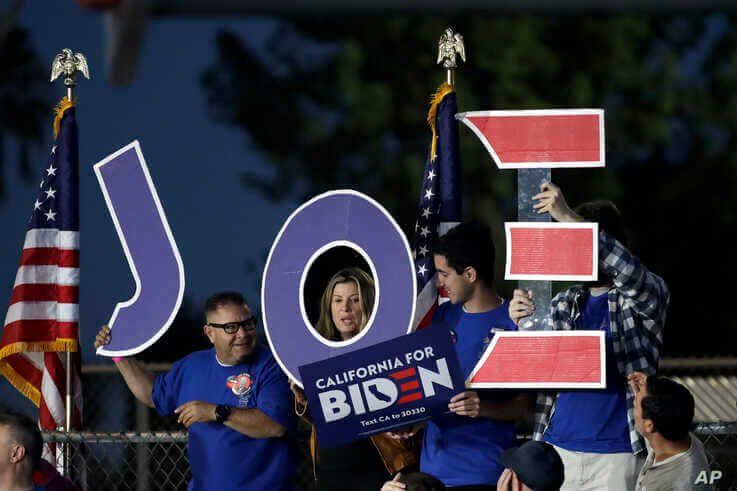
Voting was spread across the United States in the single biggest day of balloting in the race for the Democratic nomination. Last month's contests in Iowa, New Hampshire, Nevada and South Carolina were conducted on different days.
The one-day marathon of balloting Tuesday presented the candidates with a wide mix of diverse voters, from more liberal bastions in Vermont and Massachusetts to conservative enclaves in Alabama, Tennessee and Texas, to the polyglot Pacific coastal state of California, with its heavy Hispanic vote.
In all, 1,357 national convention delegates were picked Tuesday, a third of the total delegates available. A candidate needs 1,991 delegates to secure the nomination.
Delegates to the national convention are awarded state by state on a proportional basis according to the vote count in each state's primary election, but candidates have to clear a 15% vote threshold in order to win any delegates in states as a whole or in individual congressional districts.
Sanders and Biden had to contend with two other major opponents, Massachusetts Sen. Elizabeth Warren, a one-time Harvard law professor, and former New York City Mayor Michael Bloomberg, who has spent $600 million of his personal fortune of $55 billion funding his presidential campaign.
WATCH: Super Tuesday results
Sorry, but your browser cannot support embedded video of this type, you can download this video to view it offline.
Embed" />CopyWarren once was near the top of Democratic favorites for the party's presidential nomination, but she has yet to win a state nominating contest, and suffered losing to Biden in her home state of Massachusetts Tuesday.
She is hoping to win the nomination at a brokered convention with no candidate clinching the nomination ahead of time, which has not occurred since 1952.
Bloomberg was entered in his first party contests after choosing to skip the first four in February. After disappointing results Tuesday, though, he plans to reassess Wednesday whether he should continue.
In addition to the voting in 14 states, there were also contests in the U.S. territory of American Samoa and for Democrats living abroad. CNN projected that Bloomberg won five of the six delegates from America Samoa with Congresswoman Tulsi Gabbard of Hawaii winning one.
In CNN exit polls, voters in both Virginia and North Carolina widely said it was more important for them to pick a candidate who could beat Trump rather than to find a presidential choice who agreed with them on issues. In Alabama, Maine and North Carolina, voters said their overwhelming feeling about the presidential race is that they are angry at Trump, not just dissatisfied with his performance.
Trump has commented almost daily about the Democratic race, dishing out negative nicknames to all of his would-be Democratic opponents, calling Sanders "Crazy Bernie," Biden "Sleepy Joe" and Bloomberg "Mini Mike" for his short stature.
The president said Tuesday he would gladly debate any of the Democrats in the weeks before the November 3 election, when the party's nominee has been selected.
"Whoever it is, I don't care. We'll take them on," Trump told reporters. "I'll debate any of them, gladly. Very gladly."
He said there is "no question the Democratic establishment is trying to take it away from Sanders. No question in my mind."
 Left Wing Lunacy was on Full Display in FebruaryNext PostSupreme Court Takes Up 1st Big Abortion Case of Trump Era
Left Wing Lunacy was on Full Display in FebruaryNext PostSupreme Court Takes Up 1st Big Abortion Case of Trump Era
THE REAL STATE OF THE UNION TONIGHT AT 7PM ET.
Record Stock Market highs. Border secured. Cartels crushed. “America is back.” This is MUST-SEE TV. Wall-to-wall LIVE team coverage starts TUESDAY at 7PM ET on the RAV network!
